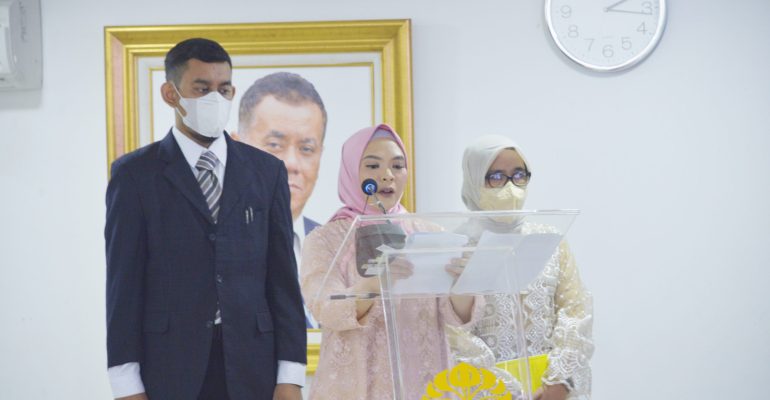Land-Based Space Utilization Control as a Solution for Environmental Sustainability
August 9, 2023 2024-12-21 17:17Land-Based Space Utilization Control as a Solution for Environmental Sustainability

Land-Based Space Utilization Control as a Solution for Environmental Sustainability
Urbanization brings various urban environmental problems including flooding, and reduced green open space. Controlling spatial utilization as one of the stages in spatial planning is an effort to reduce these problems. According to Citra Fadhilah Utami, a doctoral student at the University of Indonesia’s School of Environmental Sciences (SIL UI), increasing urbanization affects land use change from rural to urban land use. Urbanization transforms rural ecosystems that are dominated by green areas, and agriculture, into urban ecosystems with massive built-up areas.
In her dissertation entitled “Land Value-Based Spatial Utilization Control Model in Periurban Areas”, Citra mentioned that urbanization in periurban areas led to changes in land use, which resulted in impacts on the environment such as flooding, and a decrease in the area of green open space. This is due to the incompatibility of land use change with spatial planning.
Seeing these conditions, Citra assessed the need for concrete steps by using the strategic value of land as an instrument of controlling space utilization in land tax, then revenue and regional spending for the environment can increase, is expected to reduce environmental impacts such as flooding, and increase green open space. “Land value-based spatial utilization control can be a solution in environmental management that benefits regional development and economy,” Citra said.
Citra’s research aims to build a land value-based space utilization control model that integrates social, environmental, and economic elements towards sustainable urban development in Depok City, West Java. The results show that the land value-based spatial utilization control instrument can control land use change, increase the government’s economic capacity, so that it can add environmental infrastructure and green open space towards sustainable development.
To realize the goal of sustainable urban development, Citra provides recommendations for the Central and Local Governments. First, include this land value-based spatial utilization control instrument in the spatial utilization control guidelines. Second, maintain the consistency of spatial plans, especially the protection of protected areas, green spaces, and agriculture. Third, change the behavior of residents to build without conformity between property rights, and building rights in the RTR.

Thanks to her research, Citra Fadhilah Utami earned her doctorate with a GPA of 3.91. In the Doctoral Promotion Session held at the IASTH Building UI Salemba Campus, on Saturday (31/12/22), Citra was confirmed as the 62nd doctor in SIL UI and the 179th in Environmental Science.
The Doctoral Promotion Session was chaired by Dr. dr. Tri Edhi Budhi Soesilo, M.Si. with Promoter Prof. Dr. Kosuke Mizuno. On that occasion, Dr. Tri Edhi also acted as a Co-Promoter with Dr. Hayati Sari Hasibuan, S.T., M.T. The Examiners Team in the trial consisted of Dr. Andi Renald, S.T., M.T; Dr. Ir. Ernan Rustiadi, M.Agr; Prof. Dr. Rachmadhi Purwana, SKM; Drs. Raldi H. Koestoer, M.Sc., Ph.D., APU; Dr. Rudy Parluhutan Tambunan, M.S; and Dr. Evi Frimawaty, S.Pt., M.Si.







